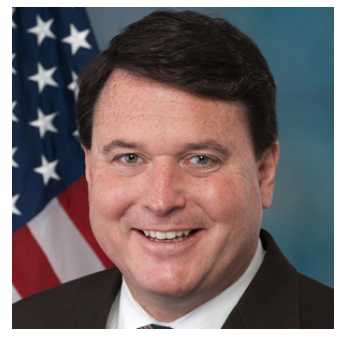
Indiana Attorney General Todd Rokita is taking action to protect states’ authority to prohibit sex-change procedures from being performed on minors — co-leading a 22-state brief to the U.S. Supreme Court aimed at thwarting the Biden-Harris administration’s efforts to override state laws.
“The Biden-Harris administration will stop at nothing to impose its radical transgender ideology on all Americans,” Attorney General Rokita said. “But Hoosiers elect state lawmakers to representtheir values, and the Indiana General Assembly has passed a law forbidding medical practitioners from performing surgery or administering drugs to children under 18 to ‘transition’ them to live as members of the opposite sex.”
In the amicus brief, the attorneys general support the State of Tennessee’s authority to enforce a law that — similar to Indiana’s — prohibits medical interventions before age 18 intended to alter boys’ or girls’ physical appearances so that they resemble members of the opposite sex.
“The Constitution leaves to states the right to make decisions about how best to protect children from unproven and risky interventions,” Attorney General Rokita said. “Here in Indiana, we have laws rooted in common sense, compassion and science.”
That lack of authority did not prevent the federal government from supporting a lawsuit against Tennessee that erroneously claims the Tennessee law violates the Equal Protection Clause of the 14th Amendment.
“Nothing in passing the Fourteenth Amendment,” the amicus brief states,” remotely suggests that the Equal Protection Clause was meant to override the States’ traditional role in regulating medicine.”
Joining Attorney General Rokita in leading the amicus brief are the attorneys general of Arkansas and Kentucky.
“In our federalist system,” the brief further observes, “the States get to decide within their borders what interventions are available for boys and girls suffering from gender dysphoria. Tennessee gets to decide that using puberty blockers and hormones . . . is not sufficiently safe or beneficial —that long-term it will do more harm than good. No equal-protection challenge can change that.”

Indiana Attorney General Todd Rokita cautioned local officials in Lake and St. Joseph counties that he will pursue legal action against them after November 8 if they refuse to follow state laws that prohibit local entities from restricting immigration enforcement activities and communications with federal immigration authorities.
“Illegal aliens coming across our unprotected Southern border for the last four years have caused a jump in crime, fentanyl overdoses, human trafficking, and an increased financial burden on state and local programs,” Attorney General Rokita said. “Hardworking Hoosiers are sick and tired ofpaying the price for this left-wing nonsense, and our office will not back down from enforcing state law.”
A "sanctuary city" is a local unit of government that has implemented a policy that deliberately and intentionally restricts and obstructs the enforcement of federal immigration laws.
The Indiana General Assembly passed a law this year authorizing the attorney general to file lawsuits against any Indiana colleges, universities, or units of local government that do not comply with the Indiana ban on sanctuary cities.
Attorney General Rokita has heard from constituents about the problems caused by mass migration into areas like Lake and St. Joseph counties. His efforts to combat sanctuary cities are an important way to address these problems.
“Everyone should have the freedom and opportunity to succeed and attain a better life,” Attorney General Rokita said. “We welcome migrants to the United States who show they are thankful to be here by entering our country legally and following our laws. Simply put, if you do not follow our laws, you should not be allowed to stay.”
Attorney General Rokita has sent letters to officials in Lake and St. Joseph counties warning them of impending legal action if they do not come into compliance with Indiana law.
Attorney General Rokita also sent letters to officials in the cities of East Chicago, West Lafayetteand Monroe County. East Chicago and West Lafayette changed their policy to comply with state law. Our office is pursuing legal action in court against Monroe County.
We continue to evaluate other local governments and will take action as warranted to ensure compliance with state law.

|
Office Locations |
|||
|


Indiana Attorney General Todd Rokita announced today that a coalition of 50 attorneys general has reached a settlement with Marriott International Inc., the result of a multi-year investigation into a massive data breach which targeted one of its guest reservation databases.
Under the settlement with the attorneys general, Marriott has agreed to strengthen its data security practices using a dynamic risk-based approach, to provide certain consumer protections, and to make a $52 million payment to states.
Indiana will receive over $900,000 from the settlement.
“Protecting Hoosiers’ personal data, whether they are checking into a hotel or just checking out potential travel plans, is an important priority of our office,” Attorney General Rokita said. “That’swhy we hold corporations accountable for responsibly handling consumers’ information. This settlement shows once again our resolve to make sure corporations are vigilant in following security protocols.”
The Federal Trade Commission, which has coordinated closely with the states throughout this investigation, has reached a parallel settlement with Marriott.
Marriott acquired Starwood in 2016 and took control of the Starwood computer network in 2016. However, from July 2014 until September 2018, intruders in the system went undetected. This led to the breach of 131.5 million guest records pertaining to customers in the United States. The impacted records included contact information, gender, dates of birth, legacy Starwood Preferred Guest information, reservation information, and hotel stay preferences, as well as a limited number of unencrypted passport numbers and unexpired payment card information.
Shortly after the breach of the Starwood database was announced, a coalition of 50 attorneys general launched a multi-state investigation into the breach. Today’s settlement resolves allegations by the attorneys general that Marriott violated state consumer protection laws, personal information protection laws, and, where applicable, breach notification laws by failing to implementreasonable data security and remediate data security deficiencies, particularly when attempting to use and integrate Starwood into its systems.
Under the terms of the settlement, Marriott has agreed to strengthen and continually improve its cybersecurity practices. Some of the specific measures include:
- Implementation of a comprehensive Information Security Program. This includes new overarching security program mandates, such as incorporating zero-trust principles, regular security reporting to the highest levels within the company, including the Chief Executive Officer, and enhanced employee training on data handling and security.
- Data minimization and disposal requirements, which will lead to less consumer data being collected and retained.
- Specific security requirements with respect to consumer data, including component hardening, conducting an asset inventory, encryption, segmentation to limit an intruder’s ability to move across a system, patch management to ensure that critical security patches are applied in a timely manner, intrusion detection, user access controls, and logging and monitoring to keep track of movement of files and users within the network.
- Increased vendor and franchisee oversight, with a special emphasis on risk assessments for “Critical IT Vendors,” and clearly outlined contracts with cloud providers.
- In the future, if Marriott acquires another entity, it must timely further assess the acquired entity’s information security program and develop plans to address identified gaps or deficiencies in security as part of the integration into Marriott’s network.
- An independent third-party assessment of Marriott’s information security program every two years for a period of 20 years for additional security oversight.
As part of the settlement, Marriott will give consumers specific protections, including a data deletion option, even if consumers do not currently have that right under state law. Marriott must offer multi-factor authentication to consumers for their loyalty rewards accounts, such as Marriott Bonvoy, as well as reviews of those accounts if there is suspicious activity.
SalemLeader.com
Leader Publishing Company of Salem, Inc.
P.O. Box 506
117-119 East Walnut Street
Salem, Indiana. 47167
Phone: 812-883-3281 | Fax: 812-883-4446
Business Hours:
Mondays through Fridays, 9:00am - 5:00pm
News:
news@salemleader.com
Office:
office@salemleader.com
Publisher:
publisher@salemleader.com
Business
- More Business News
- Go To Guide
- Business Directory
- Real Estate
- Auctions
Education
- More Education News
Opinion
- Editorials
- Letters to the Editor
- Columns
- Unsung Heroes
- Days Gone By
- In the Garden
- Guest Columns
- Reader's Poll
- Salem Leader Forum
- Questions and Answers
Church
- Bible Aerobics
- Church News
- Church Directory







